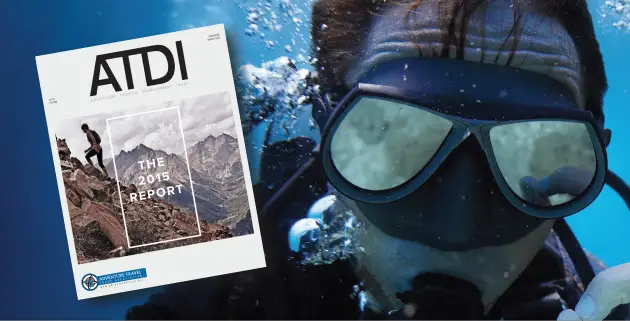Tourism Growth Opportunities for Port Elizabeth
PORT ELIZABETH, 07 August 2018 – With just 21 days to go before the city hosts a major global event that can have an incredible impact on tourism in the destination, namely the 2018 Ironman World Championship, Prof Ernie Heath, an international tourism expert, who hails from the Eastern Cape, firmly believes that Port Elizabeth and environs is on verge of realizing its vast tourism potential, much of which is still largely untapped.
During recent presentations at the AGM of the Port Elizabeth Metro Bed and Breakfast Association (PEMBBA) and a stakeholder event hosted by the Nelson Mandela Bay Tourism Board, he emphasized the fact that there can be no doubt that the city and its environs are one of the most richly endowed tourism destinations with incredible future potential that is in line with global tourism market trends.
A major priority to realise this potential is for public and private sector stakeholders across the spectrum to embrace an inspiring shared tourism vision and to agree on an overall umbrella tourism script for the city that will clarify and coordinate the roles, responsibilities and relationships of tourism stakeholders in the city in a strategic and implementation orientated manner.
Another urgent priority is to innovatively and creatively look at ways in which to spread tourism experiences, entrepreneurial opportunities and benefits to all communities in Port Elizabeth and environs. In this regard, he argued that the strongly emerging so-called shared economy if appropriately managed and controlled can provide many solutions to this important future priority. So, for example, it could spread the benefits of tourism to less visited areas; it can expand consumer options and experiences in the destination; it can employ underutilized assets; it can stimulate innovation and entrepreneurship; and importantly, enable product development and new visitor experiences in previously neglected parts of Port Elizabeth and environs without major investment.
He also emphasized that, in the light of various key trends, particularly those related to the emergence of the 4th Industrial Revolution, both public and private sector stakeholders had to appreciate the fact that the future branding and marketing of Port Elizabeth and environs was increasingly primarily being determined by two major factors, namely the quality of experiences visitors have at every tourism touch point when they visit Port Elizabeth and environs and the stories that are told and heard about Port Elizabeth and environs.
He appealed to the tourism leadership and stakeholders in the Metropole to manage and market the destination as if it was 2020 and not 2010 and importantly to strategically and pro-actively respond to the exponential and disruptive changes taking place in the macro, competitive and market environments. Tourism stakeholders were urged to form a Tourism Innovation Think Tank that could on a regular basis assess key developments and trends in the changing environment; the possible strategic implications to tourism in the city; and possible strategic and innovative responses to these changes.
Regarding the brand identity and distinctive competitive positioning of the city in the future, he reinforced the importance of building and consistently “living” and delivering on a powerful and distinctive brand personality that resonates with stakeholders, locals and key target markets. As the city and environs is blessed with a strong association with one of the world’s most recognised and respected iconic personalities, namely President Nelson Mandela, he urged the tourism leadership to consider the DNA of the city and build a powerful destination brand personality around virtues associated with President Mandela, such as warmth, welcoming, friendly, caring, freedom, etc. He argued that another unique selling proposition that could be leveraged was that although Port Elizabeth is a vibrant progressive city, it manages to maintain its small-town feel, something that resonates with many visitors.
Regarding the future marketing focus for the city it was proposed that an “inside-out” approach be followed, starting with getting locals across the spectrum, as well as ex-locals to experience the destination and through a concerted local and ex-locals awareness campaign to get them to be fully informed and passionately excited and proud of Port Elizabeth and environs, so that they will be great hosts, entrepreneurs and passionate “personal brand ambassadors and marketers” for the city and environs and importantly “live” the destination brand.
In terms of tourism offerings, the immediate challenge is to optimally package, theme, link and promote the depth and diversity of tourism offerings/experiences/events that are already in place in the city and environs and importantly to recognise and celebrate those added and renovated in recent times, such as the Nelson Mandela Bay Stadium, the Campanile and the City Library.
Another challenge was to continue to generate awareness and excitement and communicate updates and progress about all the future tourism and related initiatives planned for the city, such as the envisaged waterfront development; the planned statue of President Nelson Mandela; the Boet Erasmus Stadium development; the Apple Express; the Baakens Valley development; the envisaged airport/airlift expansion; and the “disappearance” of the ore dumps/oil tanks, to name but a few.
Other windows of opportunities that were highlighted, where Port Elizabeth has significant competitive and comparative advantages that should be leveraged, include:
- Building on its track record and major successes in hosting excellent sport, adventure and cultural events across the spectrum.
- Increasingly positioning Port Elizabeth and environs as a premier MICE (meetings, incentives, conferences and events) destination, particularly for smaller and medium-sized events.
- Building on the current momentum and initiatives around maritime tourism and the ocean economy.
- Developing a dedicated cruise tourism strategy to capitalize on the spectrum of opportunities provided by the growing cruise tourism market.
- Positioning Port Elizabeth as a gateway to SAVE (scientific, academic, volunteer and education) tourism in the Eastern Cape and as a strategic hub for tourism and hospitality education and research.
- Promoting Port Elizabeth as a gateway “hub” to and from a spectrum of exiting and innovative special interest/niche experiences and circuits/routes in the Eastern Cape (e.g. adventure tourism, agritourism, cycling, ecotourism, etc.).
In conclusion, he emphasized that time is of the essence and that there is an urgency to capitalize on the many windows of opportunity for the city and quoted Tom Peters, who said: “If a window of opportunity appears, don’t pull down the shade”. As highlighted in his presentations to Port Elizabeth tourism stakeholders, there are many current windows of opportunity for the city that, if capitalized upon, can move tourism in Port Elizabeth and environs from good to great in a relatively short period of time. The ball is now in the court of the tourism leadership; the public and private sector stakeholders; and the broader community in Port Elizabeth and environs to absolutely believe in and embrace the tourism potential of the city and together to embark on the next leg of this exciting journey that can bring so many new entrepreneurial and job opportunities and enhance the quality of life of all the people of the Bay!




